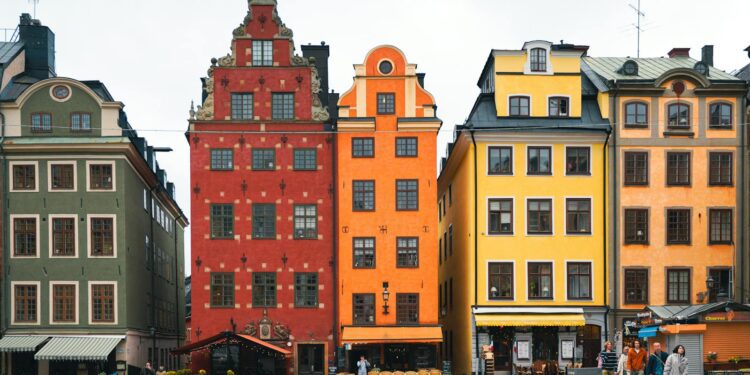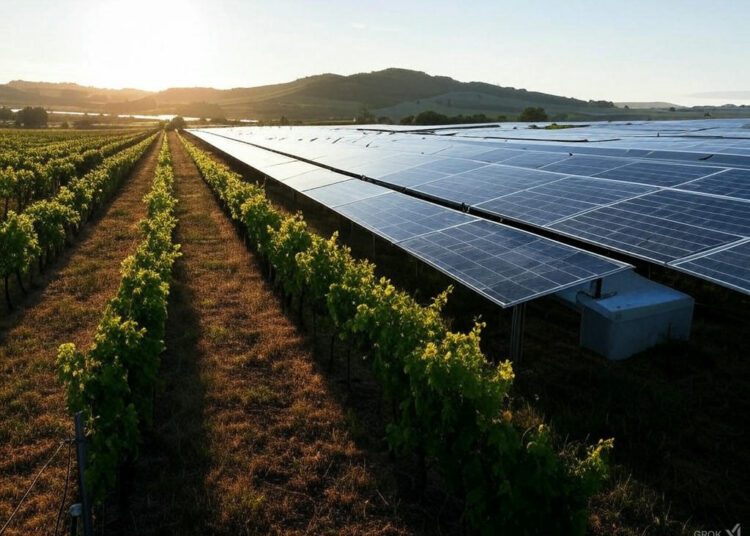Italy: Community and Labor in the Spotlight
Italy’s social sustainability is like a hearty pasta dish—rich, comforting, and best shared with others. The Bank of Italy’s supervisory expectations push companies to integrate ESG factors, including social risks like labor rights and community impact. Italian firms are hiring technical experts—think engineers turned ESG analysts—to meet CSRD reporting demands. Companies like Eni are engaging local communities in renewable projects, ensuring social benefits alongside environmental wins.
However, Italy faces challenges like income inequality and youth unemployment, which the 2012 oekom report flagged as social weak spots. Initiatives like the “Made in Italy” brand are evolving to emphasize ethical labor practices, and the EU’s Corporate Sustainability Due Diligence Directive (CS3D) is pushing firms to address supply chain human rights risks. Italy’s social sustainability is on the rise, blending tradition with progress.
France: Diversity and Equity as National Strengths
France is like the social sustainability equivalent of a perfectly balanced French pastry—structured yet delightful. The CS3D, effective from 2024, mandates companies to tackle human rights risks in supply chains, and France is aligning national laws by 2026. French firms like Schneider Electric are partnering with groups like PCAF to enhance emissions and social impact reporting, building trust with stakeholders.
France’s labor protections and diversity policies are among Europe’s strongest, with laws mandating gender balance on corporate boards. A 2023 report showed 45% of board seats in France’s CAC 40 companies are held by women, a global high. However, social tensions, like protests over pension reforms, highlight the need for inclusive dialogue. France’s social sustainability is a model, but it’s not without growing pains.
Spain: Leading with Purpose and Inclusion
Spain’s social sustainability is like a vibrant tapas spread—diverse, communal, and full of flavor. The Global Compact Network Spain, the largest of its kind, helps companies integrate the UN’s 2030 Agenda into their strategies. Spain’s Non-financial Information Law requires firms to report on social metrics like gender diversity and community engagement, driving accountability. Companies like Iberdrola are championing inclusion, with programs to hire underrepresented groups in the renewable sector.
Spain’s challenges include regional disparities and an aging population, but its focus on social innovation—like community-owned solar projects—sets it apart. The 2025 SDG report praises Spain’s progress in reducing inequality, making it a social sustainability leader in Southern Europe.
The US: Corporate Social Good Meets Systemic Challenges
The US’s social sustainability is like a potluck dinner—everyone brings something to the table, but the menu’s a bit chaotic. With 90% of S&P 500 companies publishing ESG reports, corporate America is prioritizing diversity, equity, and inclusion (DEI). Walmart’s exit from the US Plastics Pact reflects a shift toward social and environmental alignment, while Microsoft’s focus on upskilling workers for the green economy is a win for labor.
However, systemic issues like income inequality and healthcare access persist. A 2024 survey showed 60% of Gen Z investors are willing to sacrifice 14% of their wealth for ESG causes, driving demand for socially responsible companies. The lack of federal mandates means progress depends on corporate goodwill and state-level policies, creating uneven results. It’s a mixed bag, but the US’s social passion is undeniable.
Comparison: Italy, France, and Spain leverage EU mandates and cultural emphasis on equity to drive social sustainability, with strong labor and inclusion policies. The US excels in corporate DEI efforts but lacks the regulatory cohesion of Europe, leading to a more fragmented social landscape.
Governance: Transparency, Accountability, and Trust
Italy: Building Trust with EU Muscle
Italy’s governance game is like a well-orchestrated opera—structured and harmonious, with room for dramatic flair. The CSRD, rolled out in 2025, requires nearly 50,000 companies (including 3,000 US firms) to report detailed ESG metrics, and Italy’s Bank of Italy is ensuring compliance through supervisory oversight. Companies like Enel are leading with transparent sustainability reports, detailing everything from emissions to board diversity.
Greenwashing remains a concern, with cases like DWS’s €19M fine for misleading ESG claims prompting stricter oversight. Italy’s adoption of the EU’s 2025 ESG ratings regulation is standardizing metrics, boosting investor confidence. It’s a solid performance, but vigilance is key to keep the melody on track.
France: Governance with a French Flair
France’s governance is like a Michelin-starred dish—refined, reliable, and globally respected. The CSRD and SFDR drive corporate transparency, while the EU’s new ESG ratings regulation ensures consistent metrics. French regulators are cracking down on greenwashing, aligning with IOSCO’s global recommendations. Companies like L’Oréal are setting the standard, with governance frameworks that integrate ESG into board-level decisions.
France’s challenge is balancing regulatory rigor with economic growth, especially as political shifts test its commitment. Still, its leadership in global ESG standards makes it a governance powerhouse.
Spain: Transparent and Purpose-Driven
Spain’s governance is like a sunny plaza—open, inviting, and built for connection. The Non-financial Information Law mandates detailed ESG disclosures, aligning with the Paris Agreement and UN SDGs. Companies like Endesa publish comprehensive sustainability reports, showcasing governance practices that prioritize stakeholder trust. Spain’s also leveraging AI and blockchain for real-time ESG reporting, making transparency as dynamic as a Barcelona street market.
Challenges include ensuring compliance among smaller firms, but Spain’s proactive stance and EU alignment keep it ahead of the curve.
The US: Corporate Governance in a Regulatory Vacuum
The US’s governance story is like a jazz improvisation—creative but sometimes offbeat. With no federal ESG mandates, companies rely on voluntary frameworks like the TCFD (Task Force on Climate-related Financial Disclosures). The SEC’s proposed climate disclosure rules face legal pushback, with critics arguing they overreach. Greenwashing lawsuits, like those against Bank of New York Mellon, highlight the need for stronger oversight.
Yet, corporate governance is a bright spot—90% of public companies issue sustainability reports, and firms like Apple are embedding ESG into executive compensation. The US’s challenge is scaling this corporate enthusiasm without federal coordination, but its governance potential is huge.
Comparison: Italy, France, and Spain shine with EU-driven governance frameworks, ensuring transparency and accountability. The US’s corporate governance is robust but hampered by regulatory uncertainty, making it a wildcard with big potential.
Cool Trends and Game-Changers to Watch in 2025
- Italy’s Adriatic Energy Quest: The €1B renewable energy link with Albania and the UAE is like a sci-fi epic, connecting continents with clean power. It’s Italy’s ticket to a renewable future.
- France’s Green Steel Revolution: ArcelorMittal’s €1.2B Dunkirk project is proving heavy industry can go green, inspiring others to follow suit. It’s like turning a coal mine into a wind farm!
- Spain’s Solar Fiesta: TotalEnergies’ massive solar cluster is making Spain the sun-soaked capital of clean energy. Expect more mega-projects as Spain doubles down.
- US Corporate Trailblazers: From FedEx’s sustainable aviation fuel to Google’s smart irrigation, US companies are innovating like nobody’s business. They’re the superheroes of ESG without a federal cape.
- AI and Blockchain Takeover: All four nations are using AI and blockchain for real-time ESG tracking, from supply chain audits to emissions monitoring. It’s like giving sustainability a high-tech makeover.
- Youth Power: Gen Z in the US and Europe is driving ESG demand, with 60% of young investors prioritizing sustainable funds. They’re the cheerleaders of the green revolution!
Why This Matters: The Global ESG Boom
The numbers are staggering: global ESG assets are projected to hit $35–50 trillion by 2030, per Bloomberg Intelligence. Europe’s Italy, France, and Spain are leading with regulatory muscle and cultural zeal, while the US is powered by corporate innovation and consumer passion. For businesses, ESG isn’t just compliance—it’s a chance to build trust, attract investors, and make a difference. For investors, it’s about backing companies that align with a better future. And for all of us, it’s about creating a planet we’re proud to pass on.
Italy’s renewable renaissance, France’s green industry push, Spain’s solar dominance, and the US’s corporate creativity show that sustainability is a global team effort. Each nation brings its own flavor, and together, they’re cooking up a recipe for change. As Positive Phil always says, “Stay positive, work hard, and make it happen!”—and that’s exactly what these countries are doing.
Your Call to Action
Ready to join the green adventure? For businesses, dive into the CSRD for Europe or explore the SEC’s proposed rules for the US. For investors, check out sustainable funds aligned with the EU Taxonomy or TCFD frameworks. And for everyone, take one small step—swap a car ride for a bike, support a local green business, or share this post to spread the word. Let’s make sustainability the coolest trend of 2025. What’s your next move, eco-warrior?


















